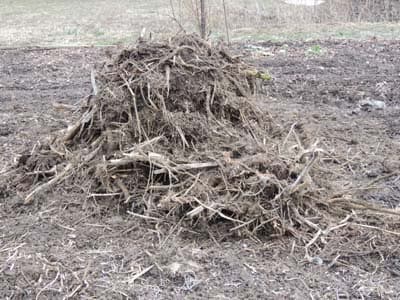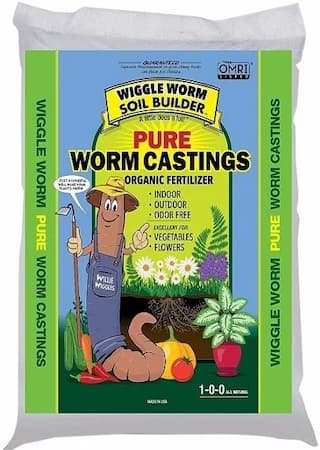Worm Composting or Vermicomposting

About Worm Composting
Worm composting, also called Vermicomposting, is another way to decompose plant matter. Worms do the work of consuming compostable materials. It’s easy to set up a worm farm. Then, the worms excrete nutrient and mineral-rich worm castings. Assuming you are using all organic raw compost materials, the output is also organic…. healthy for you and your plants!
Earthworms create worm casting equal to their weight every day. Worm castings are highly valued by experienced gardeners. Worm castings are such a valuable plant fertilizer, that some companies are in the business of managing worm farms to produce and sell worm castings.
Did you Know? People once thought garden earthworms were a bad thing. Many people confused them with snakes. As a result, gardeners would try to rid their gardens of this “pest”.
How to Create a Worm Farm
It’s easy to practice vermicomposting and maintain a productive worm farm:
Select a large wooden, or plastic box or container.
Drill small holes in the bottom for water to drain.
Add ample amounts of bedding materials: shredded paper, cardboard, leaves, or other brown “materials”. Avoid color-printed newspapers.
Moisten the bedding material.
You can also add decomposed manure (not raw).
Next, mix in food for them. Use plant matter. Kitchen scraps make great food for your worms.
Do not add dairy products, oils, or bones.
Add red worms or earthworms.
Cover the top with a layer of wet newspaper.
The worms feed on the plant matter and leave nutrient-rich castings behind.
Continue to provide a regular supply of plant matter…it’s their food source.
Keep the worm farm in a cool, dark location. If the container is in sunlight, it can get too hot for the worms to survive.
Harvest finished compost, which is full of rich worm castings. Carefully, remove the worms, and place them back into the container to continue their work.
A healthy and successful worm farm will maintain a population of worms indefinitely, The worms will reproduce.
Garden Tip: Never put worms in a composter. The temperatures reach a high level that kills the them.

Not All Worms are Created Equal
There are virtually thousands of varieties of worms. They are found all over the world. Red worms and earthworms are the common residents of a worm farm.
Red Worms – These little guys are used most often for worm composting. Most people who have worm farms prefer to use efficient, hard-working red worms.
Nightcrawlers – Those big, fat worms that fishermen seek for a day on the water, are good composters, too. They are also effective aerators, helping to loosen the soil so plant roots can spread easier. Their big, deep tunnels and burrows allow water and moisture to penetrate deeper into the soil where your plant’s roots are. Nightcrawlers also leave plenty of worm castings behind.
Worm Casting Liquid Fertilizer – Castings can be made into a liquid tea to fertilize all of your plants, indoors and out.
Related Articles
People who like this article will also like:
More on Composting – more about the composting process.
Mushroom Compost – guess what it is made of????
Please support our site. Shop for:
- rmmatthews100@hotmail.com
- 585-721-6528
- Rochester, NY
©1999-2024 GardenersNet.Com, All Rights Reserved

